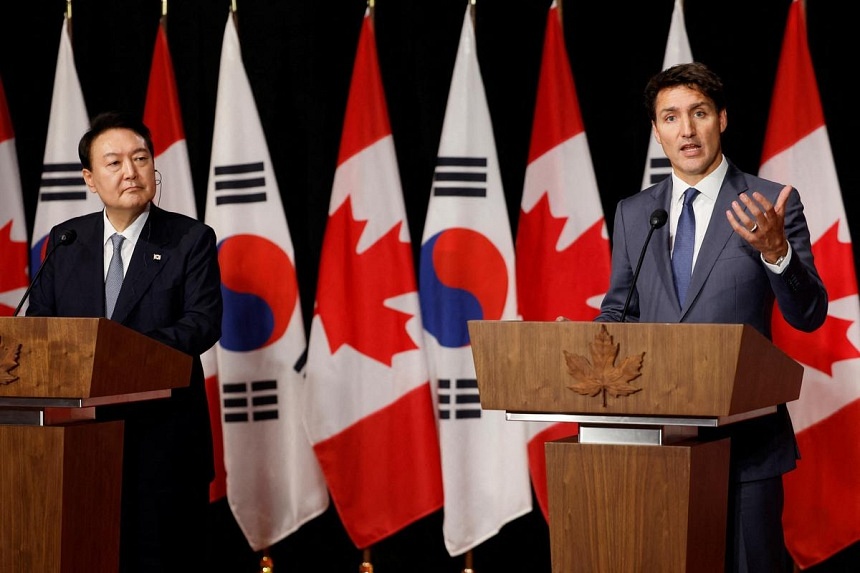TOKYO - Japanese Prime Minister Shigeru Ishiba may find that the price for securing the support of a small opposition party and hanging on to power after a major election setback is to offer part-time workers a tax break.
After the ruling coalition’s dismal performance in the Oct 27 election, he needs to find allies ahead of a vote next month, and the spotlight has fallen on the Democratic Party for the People. The group, headed by Yuichiro Tamaki, quadrupled its presence in parliament after campaigning on a policy of expanding tax-free income allowances for part-time workers.
The DPP’s 28 votes would be the easiest path to a majority for Mr Ishiba’s Liberal Democratic Party (LDP) and its coalition partner Komeito, which together fell 18 seats short of the 233 required to pass legislation.
While Japan is struggling with the biggest debt load in the developed world, accepting a loss of revenue in return for support may be the most realistic way forward.
Mr Tamaki wants to raise the ceiling on tax-free annual income for part-time workers from ¥1.03 million (US$8,800) to ¥1.78 million. He says this would encourage part-time staff to work longer hours as they would not have to pay income tax until they reached a higher income threshold.
Under his proposal, wage-earning spouses of part-time workers would also remain eligible for tax breaks for dependents typically worth ¥380,000 per year, further reducing the downside of their partners working extra hours.
A higher ceiling would help relieve the nation’s labour shortage while raising household incomes, Mr Tamaki argues. On the downside, it would lower tax receipts for a government that keeps adding to spending and has another extra budget in the pipeline.
“That’s the biggest item on the DPP’s policy agenda and so there is a good chance that Ishiba will accept it,” said Koya Miyamae, an economist at SMBC Nikko Securities Inc.
Mr Ishiba is set to call on the DPP to form a “partial coalition,” the Yomiuri newspaper said on Oct 29, citing an unidentified LDP official.
Mr Tamaki reiterated in the morning that he was not considering entering a coalition with Mr Ishiba’s LDP, though he was open to negotiation on policy matters. He said he still intended to put forward his own name in the vote for prime minister, which the Yomiuri said was set to come on Nov 11.
“I’m not sure how much impact raising the cap will make, but it will lead to a tax revenue loss,” said Harumi Taguchi, principal economist at S&P Global Market Intelligence. “That will feed into uncertainty over how to generate revenue for necessary spending.”
Still, raising the ceiling might be an easier sell for the ruling coalition than changing tax rates and is perhaps the most acceptable policy deal Mr Ishiba could sign off on to remain as premier.
The Constitutional Democratic Party won the most seats among opposition parties with 148, but its leader, former Prime Minister Yoshihiko Noda, has ruled out a grand coalition with the LDP.
The Japan Innovation Party, with 38 seats, is calling for the sales tax to be set at 8 per cent across the board, the transformation of Osaka into a unified metropolitan area and an increase in the responsibilities for the Bank of Japan, demands that represent a much heavier lift. Friction between the party and Komeito presents another hurdle for cooperation.
The DPP also turned down a request to meet with the Constitutional Democratic Party, broadcaster FNN said on Oct 29, citing an unidentified person. The CDP had been mulling trying to build a rival coalition. BLOOMBERG

 By The Straits Times | Created at 2024-10-30 00:57:43 | Updated at 2024-10-30 03:29:08
3 hours ago
By The Straits Times | Created at 2024-10-30 00:57:43 | Updated at 2024-10-30 03:29:08
3 hours ago



